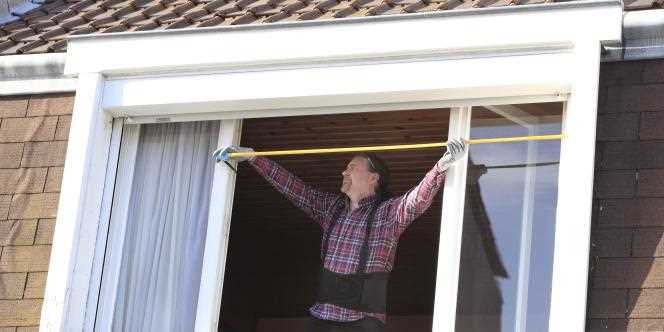Can you install a wood stove yourself in your living room to save on your energy bills, without asking the owner?
In general, carrying out major work in a dwelling where you are a tenant requires written authorization from the owner. Only light work or improvements, such as repainting a room or installing a shelf, are possible without authorization. If the tenant carries out heavier work, the owner may require a restoration on his departure from the premises, or keep the transformations carried out for his benefit without the tenant being able to claim compensation for the costs incurred.
The lessor even has the possibility of requiring immediate restoration at the expense of the lessee when the alterations jeopardize the proper functioning of the equipment or the safety of the premises.
As for the handicap
But the Climate and Resilience Law of August 22, 2021 created an exception: to carry out energy renovation work, tenants no longer necessarily need the written agreement of their owner. “This foreshadows a change in mentality, the idea is that all housing must be renovated and that we must act even if one is a tenant, because it is the use of housing that pollutes, whether one is an owner. or tenant “, says Edouard Barthès, president of Symbiote, a professional energy renovation union.
Before making any arrangements related to energy savings, however, it is necessary to follow a precise procedure
An exception already existed: the tenant can carry out work to adapt the accommodation to the handicap without needing the owner’s written consent. Installing a stairlift, changing a bathtub into a shower or even creating, removing or modifying the partitions or interior doors of the home are, for example, possible.
As with this work related to disability, before making any adjustments related to energy savings, it is however necessary to follow a precise procedure. First step: send a registered letter with acknowledgment of receipt to the lessor, asking for his agreement. If he does not respond after two months, the agreement is taken for granted and the tenant can proceed with the work.
“This measure is interesting but, for the moment, it raises many questions, starting with the types of work concerned”, says David Rodrigues, legal manager at the Consumption, Housing and Living Environment (CLCV) association. Indeed, energy renovation works are very varied: they can go as far as insulating the home from the outside, thus completely transforming the facade.
Details are awaited
In the case of disability, a decree gives a list of the work that can be carried out; a text should therefore also detail which energy saving work is concerned. The decree would also specify what must be contained in registered mail to the owner. For the handicap, the tenant must for example describe precisely the planned work, the envisaged transformations and the conditions under which this work will be carried out.
The risk is that the tenant will not be able to recover, before leaving the accommodation, the amount of the investment thanks to his energy savings.
The tenant must also indicate that in the absence of a response, the agreement will be considered tacit. In all likelihood, the obligations for energy saving work will be modeled on those for disability.
The main obstacle, however, is the following: the energy saving work can be very expensive, for example if it is an insulation from the outside or the installation of solar panels on the roof, the time return on investment is therefore very long. Often more than fifteen years old. The risk is that the tenant will not be able to recover, before leaving the accommodation, the amount of the investment thanks to his energy savings.
It is therefore a full-fledged investment while the owner sees his home valued. It remains to be seen whether tenants will be able to benefit from more aid than is currently the case. Tenants can already benefit from the energy saving certificates (EEC), which reduces the bill. But not the MaPrimRénov ‘aid.
“Rather than advancing the expense, you have to try to come to an agreement with your landlord and try to persuade him to invest to enhance his home and protect the environment, even if it means helping him find businesses and monitor the work “, advises David Rodrigues. The increasing constraints on owners renting poorly insulated housing could encourage lessors to accept this proposal.
